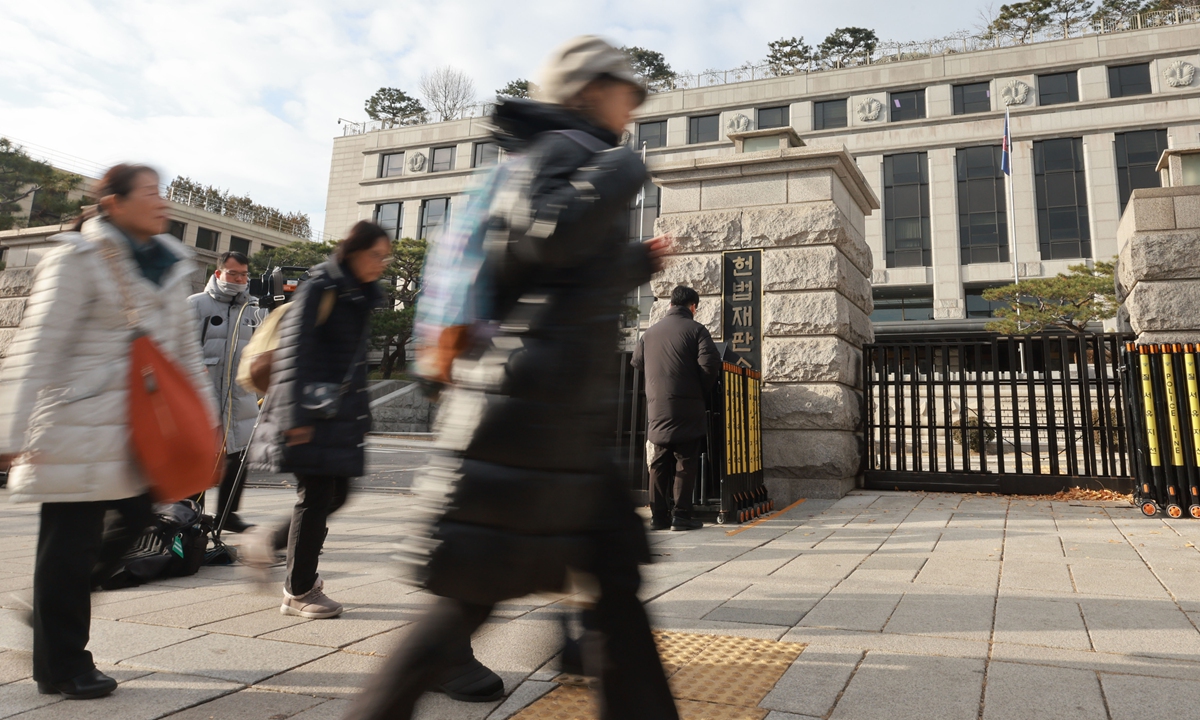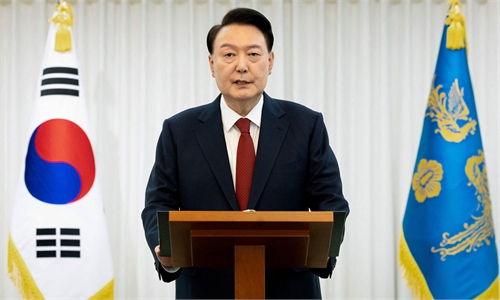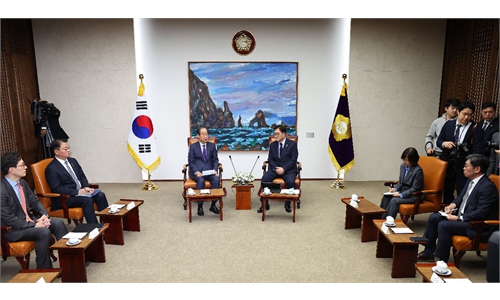China's policy towards ROK consistent, says Chinese FM on impeachment motion against Yoon
Constitutional Court to hold first preparatory hearing on December 27

South Korea's Constitutional Court
China has taken note of the most recent political developments in the ROK. They are the ROK's internal affairs, and we will not comment on it, Chinese Foreign Ministry spokesperson Lin Jian said on Monday, in response to the South Korean National Assembly passing the impeachment motion against President Yoon Suk-yeol on Saturday.
China and the ROK are important neighbors and cooperation partners. The sound and steady growth of bilateral relations is in the interest of both sides. China's policy towards the ROK has been consistent, and we have maintained the continuity of that policy, Lin told a routine press conference on Monday.
We hope the ROK will make continued positive efforts with China to actively deepen our friendly cooperation and strategic cooperative partnership. A peaceful and stable Korean Peninsula is in the interest of all parties and requires the concerted and strong effort of all sides, the spokesperson said.
Responding to a question on whether the appointment of a new Chinese ambassador to South Korea be postponed due to the impeachment, Lin said that he has no information to share, and suggested following the Foreign Ministry's website for any update.
The leader of South Korea's ruling People Power Party Han Dong-hoon said Monday he is stepping down amid growing internal strife following the National Assembly's vote to impeach Yoon. Han apologized to all those who suffered from the martial law chaos and Yoon's impeachment but said he has "no regrets" over his decision to support the impeachment, Yonhap reported.
On the same day, South Korea's Constitutional Court said it will hold its first preparatory hearing on the parliamentary impeachment of Yoon on December 27, kicking off the judicial procedure for his impeachment trial.
The top court, which has up to 180 days to deliver its ruling on whether to uphold the impeachment and remove Yoon from office or reinstate him, said it will prioritize Yoon's impeachment trial.
However, according to the Korea JoongAng Daily, the court is currently operating with only six justices, three short of the full nine-member bench. Despite this, the court said that both the review and trial can proceed with the current six justices.
"The proceedings of the Constitutional Court regarding the impeachment result are highly uncertain," Dong Xiangrong, a senior research fellow at the National Institute of International Strategy, Chinese Academy of Social Sciences, told the Global Times on Monday, noting that regardless of whether the six judges support or oppose the impeachment, they face immense pressure from both opposing camps.
"Factors such as public opinion, constitutional provisions, and their personal relationships will all have an impact on the deliberation of the impeachment case," Dong said.
"Another variable is that the South Korean National Assembly may nominate three new justices to fill the nine-member panel in the Constitutional Court, a process that will take time," Dong said, noting that if the nominations are approved and the new justices participate in the rulings, their political leanings will also influence the outcomes of the impeachment result.
If the impeachment result is overturned by the Constitutional Court, the country may experience ongoing turmoil, as the prevailing sentiment among its domestic public is firmly in favor of upholding the impeachment, the expert noted.
Also on Monday, South Korean prosecutors summoned Yoon for questioning for the second time after their botched attempt to subpoena the impeached president last week, the Xinhua News Agency reported.
Dong pointed out that regardless of whether Yoon accepts the summon, it will not significantly affect the impeachment trial's outcome. This is because, in addition to his personal statements, there are many other individuals involved who have received orders or have been asked to provide testimonies, the expert said.


